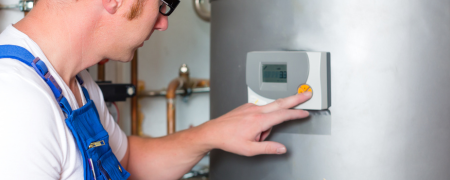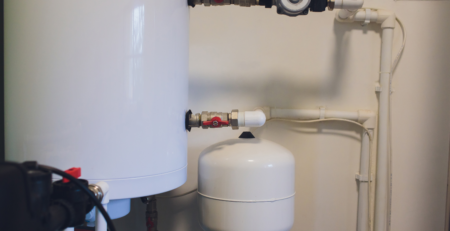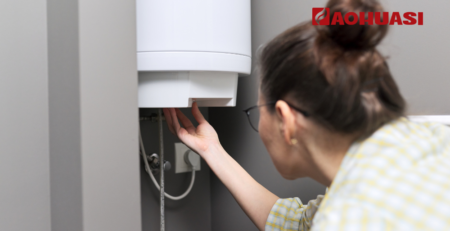Eco-Conscious Living: Sustainable Practices with Electric Home Water Heaters
Sustainable Practices with Electric Home Water Heaters In an era where environmental consciousness is a top priority, adopting sustainable practices in our daily lives is crucial. Electric home water heaters play a significant role in this endeavor, offering opportunities to minimize our carbon footprint and contribute to eco-friendly living. In this guide, we explore sustainable practices that align with electric home water heaters, ensuring that your hot water needs are met with environmental responsibility.
**1. Energy-Efficient Electric Water Heaters
Choosing an energy-efficient electric water heater is the first step towards sustainable living. Look for models with high Energy Factor (EF) ratings, indicating superior energy efficiency. Tankless and heat pump water heaters are particularly known for their energy-saving capabilities, as they only heat water when needed, reducing standby energy loss. Investing in an energy-efficient water heater not only lowers your utility bills but also reduces overall energy consumption.
2. Utilize Off-Peak Heating
Take advantage of off-peak hours for heating water, especially if your electric utility offers variable-rate plans. During off-peak times, electricity demand is lower, and rates are often more affordable. Program your water heater’s timer or smart controls to operate during these periods, optimizing energy usage and contributing to a more sustainable and cost-effective approach.
3. Set Optimal Temperature Levels
Adjusting your water heater’s thermostat to optimal temperature levels is a simple yet effective sustainable practice. The recommended temperature for hot water is around 120°F (49°C). This not only prevents scalding but also minimizes the need to mix hot and cold water, reducing energy consumption. Regularly check and adjust the thermostat to ensure that your water heater operates at the most energy-efficient temperature.
4. Regular Maintenance for Efficiency
A well-maintained electric water heater operates more efficiently, leading to energy savings and a longer lifespan. Schedule regular maintenance tasks such as flushing the tank to remove sediment, inspecting and replacing the anode rod, and checking for leaks. Efficient operation reduces the strain on the water heater, ensuring it continues to function optimally with minimal energy waste.
5. Insulate Hot Water Pipes
Insulating the hot water pipes connected to your electric water heater helps retain heat, reducing the need for the heater to work harder to maintain water temperature. Pipe insulation is a cost-effective and simple DIY upgrade that contributes to energy efficiency. By minimizing heat loss during water transportation, you maximize the effectiveness of your electric water heater while using less energy.
6. Explore Solar Water Heating
For those seeking a more sustainable approach, consider integrating solar water heating with your electric water heater. Solar water heaters use energy from the sun to preheat water before it enters the electric water heater, reducing the electricity needed for heating. While it may require an initial investment, the long-term environmental benefits and potential energy savings make solar water heating an eco-conscious choice.
7. Upgrade to a Heat Pump Water Heater
Heat pump water heaters are a sustainable alternative that extracts heat from the surrounding air to warm the water. This technology is highly energy-efficient, making it a greener choice compared to traditional electric water heaters. While the upfront cost may be higher, the energy savings and reduced environmental impact over time contribute to a more sustainable living approach.
8. Install Low-Flow Fixtures
Pairing your electric water heater with low-flow fixtures, such as faucets and showerheads, enhances water efficiency. These fixtures reduce hot water consumption, leading to energy savings and lower water bills. Choose fixtures with the WaterSense label to ensure they meet water efficiency standards. The combination of an energy-efficient water heater and low-flow fixtures promotes a more sustainable and eco-conscious lifestyle.
9. Responsible Disposal and Recycling
When it’s time to replace your electric water heater, ensure responsible disposal and recycling of the old unit. Many components of water heaters, such as the tank and metal parts, can be recycled. Check with local recycling facilities or contact the manufacturer to inquire about recycling options. Proper disposal practices contribute to reducing electronic waste and environmental impact.
10. Water Conservation Practices
In addition to energy considerations, adopting water conservation practices contributes to overall sustainability. Fix leaks promptly, collect rainwater for non-potable uses, and consider water-efficient landscaping. These practices reduce the demand on your electric water heater and align with a holistic approach to eco-conscious living.
Conclusion
Embracing sustainable practices with your electric home water heater is a meaningful step towards reducing your environmental impact. Whether through energy-efficient choices, responsible maintenance, or integrating eco-friendly technologies, you can align your hot water needs with a commitment to eco-conscious living. By making informed decisions and incorporating these sustainable practices, you contribute to a greener and more sustainable future.
Get Access Now
Ready to explore more sustainable practices with electric home water heaters? Visit for insights, comparisons, and expert recommendations on eco-friendly water heating solutions that align with your commitment to sustainable living.




Leave a Reply